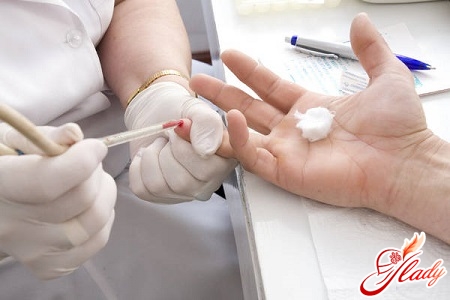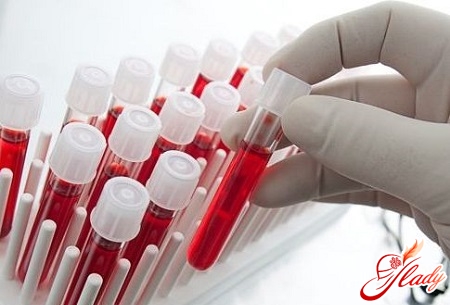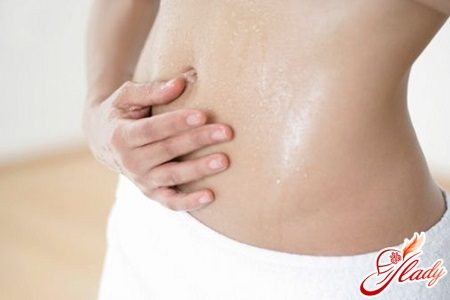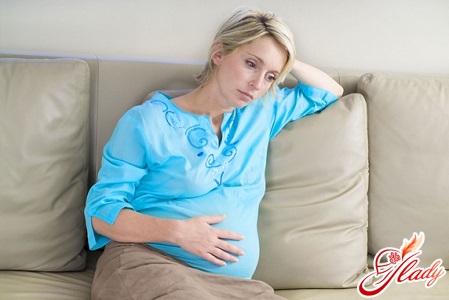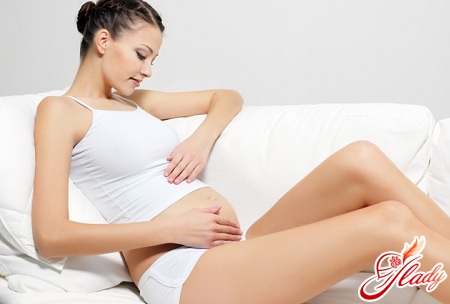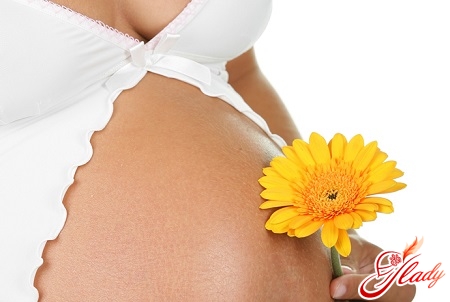
In the conditions of our civilization it is very difficultmaintain your health. And when it comes to pregnancy, the health problem is most acute. As we remember, the 20th century was called the century of cardiovascular diseases, but the 21st century, according to the forecasts of the World Health Organization, has already been called the century of allergies. According to the latest estimates, 20% of the world's population suffers from allergies, and in places with unfavorable environmental conditions, the scale increases to 50%. As for Russia, in total 15-35% of people suffer from allergies (depending on the region). If we consider the last thirty years, we can safely say that every 8-9 years the number of registered cases of the disease increases by 2-3 times. There are many reasons: they include deteriorating ecology, stress, industrial development that neglects environmental protection measures, taking medications without consulting a doctor, poor nutrition, using cosmetics (the quality of which no one monitors), and, of course, the emergence of new allergens due to the invention of new means for household disinfection. Allergy is a manifestation of the body's protective reaction, during which its own tissues are damaged. This phenomenon in medical terminology is called OAD - acute allergic disease. Statistics confirm that 5-25% of allergies occur in pregnant women. Over the past twenty years, the number of such cases has increased 6 times. Women aged 18 to 24 are most susceptible to allergies.
How does an allergy occur?
Let's consider three stages of the mechanism of allergic reactions:
- The first exposure to the allergen in the body. As it can act as animal wool, pollen of plants, cosmetics and food products (any pathogens of allergies). Immune cells of the body recognize foreign substances and begin to produce antibodies. These antibodies are fixed on the walls of mast cells located under epithelial tissues or under mucous membranes. In this state, antibodies can exist for more than a year, waiting for repeated contact with the pathogen.
- At the second stage, when the allergen again falls into theorganism, antibodies are bound to the surface of the mast cell, the mechanism of "opening" of such cells is triggered, anti-inflammatory hormones (serotonin, histamine, etc.) are released from them. They cause the first symptoms of an allergy.
- In the third stage, anti-inflammatory hormonesdilate blood vessels and increase tissue permeability, which causes inflammation and swelling. If the allergen gets into the blood (this is considered a severe case), anaphylactic shock is possible - a sharp drop in blood pressure as a result of strong vasodilation.
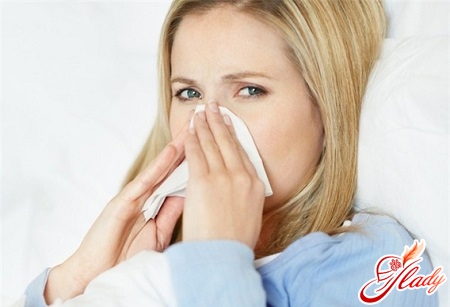
Distinguish between light and heavy OAS
Mild OAZ: main symptoms
- Localized urticaria - rounded blisters with a pale center and raised edges are formed, accompanied by severe itching.
- Allergic conjunctivitis is formedswelling and hyperemia (redness), the vessels on the white of the eye are clearly visible, all this is accompanied by itching, lacrimation, swelling of the eyelids, photophobia and narrowing of the eye slit.
- Allergic rhinitis - difficulty breathing through the nose, swelling of the nasal mucosa, mucous discharge, a burning sensation in the throat and constant sneezing.
Severe OAZ: main symptoms
- Quincke's edema - swelling of the skin, mucous membranesmembranes, subcutaneous tissue. Most often, swelling develops in the area of the cheeks, lips, forehead, eyelids, scalp, hands, scrotum, feet. Swelling also affects the joints and mucous membranes of internal organs. For example, swelling of the larynx can be determined by coughing, a feeling of suffocation, and hoarseness. And swelling of the gastrointestinal tract is accompanied by abdominal pain, vomiting, or nausea.
- Anaphylactic shock - decreaseblood pressure (hypotension), confusion, difficulty breathing, abdominal pain, itchy skin, hives, and even loss of consciousness within an hour of exposure to the allergen.
Among these OAZs, the most common in pregnant women are:urticaria, Quincke's edema and allergic rhinitis. If the mother develops an allergy, the child does not suffer from allergies, because the antigens that fight allergies do not reach the fetus through the placenta. However, the baby in the womb experiences discomfort due to the general condition of the mother. In addition, medications for the treatment of allergies have a detrimental effect on the fetus, since they can easily cause a decrease in the uteroplacental blood flow, which ensures the life of the fetus.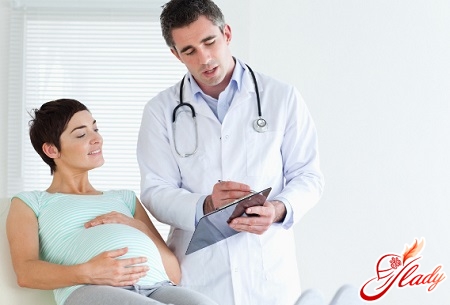
How to cure an allergy
The main goal is fast and safeустранение симптомов аллергоза у беременных без отрицательного воздействия на ребенка. Известно, что реакция на любой препарат напрямую зависит от физиологического состояния человека. А беременность в этом случае — особенное состояние. Осложняют лечение ОАЗ у беременных следующие факты: 60-80% женщин принимают постоянно и другие лекарственные препараты, а у 40-45% имеются болезни внутренних органов. Среднестатистическая беременная женщина за 9 месяцев принимает таблетки 4 видов и более, не учитывая микроэлементов, витаминов и БАДов. Все эти средства неизбежно влияют на плод, особенно в случаях самолечения. Стоит помнить, что большинство антигистаминных лекарств против аллергии категорически противопоказаны при лечении аллергии в период беременности. Например, Димедрол (самое распространенное средство против аллергоза) может вызвать сокращения матки на позднем сроке беременности, Терфенадин способствует уменьшению веса новорожденного, Астемизол токсичен для плода. Кларитин, Супрастин, Цетиризин, Фексадин, Тавегил, Пипольфен — все эти средства против ОАЗ следует принимать по жизненно важным показаниям, с разрешения лечащего врача, иначе последствия могут быть плачевными. Как только появились первые проявления аллергической реакции, вам незамедлительно стоит обратиться к аллергологу. На начальных стадиях заболевания вы сможете обойтись без приема препаратов внутрь, ведь не забывайте о том, что есть крем, помогающий справиться с отеками и зудом. А это гораздо лучше, чем таблетки. При первом проявлении аллергоза следует проанализировать питание и все действия, совершенные накануне, чтобы выявить причину возникновения ОАЗ. Если самостоятельно выявить аллерген не удалось, не отчаивайтесь, наука не стоит на месте, любой аллерголог сможет вам помочь. Вам сделают «кожный тест»: введут под кожу растворы из потенциальных (более распространенных) аллергенов (экстракты пыльцы деревьев, трав, яда насекомых, эпидермиса животных, лекарств, пищи). Если у вас есть аллергия на одну из этих субстанций, то на месте укола образуется отек. Какие же средства против ОАЗ применять? Подобрать лекарства от аллергии при беременности не так легко. Для начала обратитесь к врачу. Никто, кроме него, не сможет вам назначить лекарство от аллергии при беременности, не угрожающее плоду. Но если же аллергия застала вас врасплох и нет возможности посещения доктора, то, руководствуясь данными о препаратах, применяемых против ОАЗ, вы, возможно, сможете подобрать подходящий метод лечения. Один из менее опасных препаратов — аллертек (цитерезин). Его можно принимать во 2 и 3 триместре беременности. Супрастин (хлорпирамидин), Тавегил (клемастин), Пипольфен (пиперациллин), Кларитин (лоратадин) — все эти препараты безоговорочно вредны для плода. Принимать их следует только по жизненно важным показаниям в случае, если эффект терапии значительно превышает риск для плода, попросту, если аллергическое состояние матери угрожает ребенку больше, чем сам препарат. Но эту угрозу в любом случае должен определять доктор в каждом конкретном случае. Если же аллергия не вызывает у вас плохого самочувствия, вполне можно обойтись без лекарств, используя крем. Например Фенистил-крем или Ла-кри. Эти средства помогут вам избавиться от зуда, отека на коже. Крем — более щадящее средство в борьбе с аллергией, когда речь идет о периоде беременности. 
Prevention is the best way to prevent disease
Preventive measures include:limiting the consumption of highly allergenic foods (individually for each person), limiting contact with household chemicals, cosmetics, etc. During pregnancy, you should keep your home clean. Do wet cleaning every day, vacuum carpets and furniture every few days, beat out pillows, change bed linen. Smoking during pregnancy is unacceptable (both active and passive). This factor has a detrimental effect not only on the child's growth, development, and formation of internal organs, but also increases the likelihood of allergies, both in the mother during pregnancy and in the baby after birth. All doctors in the world are against artificial feeding, they tirelessly repeat that newborns should be fed with breast milk! This is the most useful and hypoallergenic product. Pregnancy is a special condition for a woman. That is why a woman should think not only about herself during this period, but also about the baby. Follow all the recommendations of doctors, take care of your health, do not take medications without a doctor's prescription, because now a new life is in your hands!




